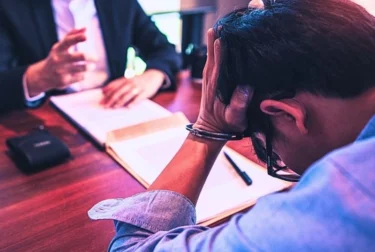Synthetic drugs, also known as designer drugs, are sweeping the country with deadly consequences. In the United States alone, between 200 to 300 new synthetic designer drugs were identified between 2009 and 2014. Most of these drugs were manufactured in China and India and shipped to the United States for distribution through various sources.
(Article continues below infographic)
What are Synthetic Drugs?
Synthetic drugs are made in some type of laboratory. They are made with man-made chemicals rather than natural ingredients. A synthetic designer drug is a chemically made version of an illegal drug that has been altered slightly in some way, so it isn’t classified as an illegal substance according to state and federal drug laws. It’s essentially a lab experiment by a chemist, trained or untrained, to create a drug that can be sold legally without consequences. Synthetic drugs allow drug dealers to sell and distribute drugs and make significant amounts of money without breaking any Minnesota drug laws that may require a drug attorney St. Paul.
How are Synthetic Drugs Sold or Distributed?
Most synthetic drugs are sold and distributed through street-wise drug dealers in various cities around the country, but some are often sold over the Internet or in mom-and-pop stores that deal in herbs and various home remedies. When distributed online or in stores, these drugs are often labeled as “herbal smoking blends,” “herbal incense,” or “plant food.” Others are often disguised and labeled “not for human consumption” and show up labeled as “bath salts” or “jewelry cleaner.” All of these labels are created for the sole purpose of masking the drug to avoid FDA health and safety rules and misdemeanor or felony drug offenses. When sold online, sites set up by drug dealers advertise these products as completely natural, legal and safe, so buyers are led down a potentially deadly path by intentional false advertising. Some online sites try to pass as legitimate pharmacies or chemical distributors. They claim to get their drugs from reputable, professional laboratories based in India, China and other countries around the world. The truth is, many synthetic drugs are made from chemicals that have not even been tested, so potential buyers and drug users have no way of knowing the real effects of the drugs they buy. In Minnesota, unsuspecting buyers often wind up in a local emergency room from serious side effects. They find themselves faced with a serious drug charge that requires legal advice from a drug attorney St. Paul.
Popular Synthetic Drugs
Popular synthetic drugs include LSD, Ecstasy, methamphetamine (Crack Cocaine), synthetic stimulants (Bath Salts), synthetic marijuana (K2 or Spice), and a drug called “N-bomb” with mind-altering effects similar to LSD. All of these synthetic drugs have a wide variety of serious side effects on the body and carry serious law violations requiring help from a drug attorney St. Paul. Since chemicals used to manufacture synthetic drugs are constantly changing, there’s no way to even predict the specific risks and side effects of each drug. Synthetic marijuana (Spice or K2) is sprayed with toxic chemicals that mimic the mind-altering effects of THC found in regular marijuana plants. When ingested, these toxic chemicals pose serious, even deadly health risks for people of all ages.
- Between 2010 and 2012, calls to poison control centers related to synthetic marijuana use increased by 80 percent in the U.S.
- In 2013, a U.S. government report showed that the number of emergency department visits involving toxic reactions to synthetic marijuana doubled to over 28,000 emergency room visits.
- In 2014, a Texas drug dealer was linked to over 125 “K2” overdoses in one week in the Dallas and Austin areas. Victim fatalities were among ages that ranged from 15 to 50.
- Since 2011, Bath Salts have been linked to over 24,000 emergency department visits in the U.S. Hospital reports show that over 16 percent of those patients were admitted in critical condition or died after admittance.
- In 2015, 19 deaths were been linked to “N-bomb” use. N-bomb, a mild-altering drug, often causes kidney failure and death.
Since synthetic drugs are available over the Internet, they can reach thousands of people every day. Easy access and avoidance of drug law penalties have made synthetic drugs popular with dealers looking for a fast dollar and users looking for a fast high. Most buyers have no idea what they’re really buying. They are trusting drug dealers and false Internet claims that synthetic designer drugs are legal and safe. Sadly, many of those buyers, especially first time buyers, are teenagers and young adults who are totally unaware of the serious health risks and often deadly consequences of synthetic drugs. In Minnesota, drug arrests require a drug attorney St. Paul who understands state drug laws and penalties.





